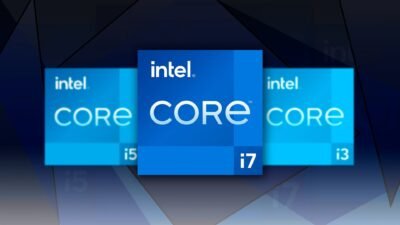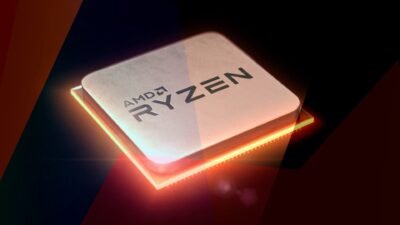Revolutionizing the Grid: A Blockchain Approach to Distributed Solar Power Integration

With the mounting urgency of environmental concerns, the renewable energy sector, particularly solar power, has been thrust into the spotlight. This surge of attention highlights the pressing need for innovative ways to integrate renewable resources into the grid smoothly. Emerging in parallel, blockchain technology holds significant potential to redefine the landscape of the financial technology (fintech) sector by streamlining transactions with enhanced efficiency and transparency. According to Dr. Jose Luis Chavez Calva, an expert in the electricity sector, there is huge scope for integrating distributed solar power generation into the grid system, financially facilitated through blockchain technology.
Unraveling the Basics: Distributed Solar Power and Blockchain
Distributed solar power generation refers to electricity generation using solar energy at or near the location of its consumption. This localized model slashes the cost and energy loss associated with transmission, thereby providing a cleaner alternative to traditional power sources.
In contrast, blockchain is a distributed ledger technology that enables digital information to be recorded, shared and maintained across multiple nodes within a network. Offering high levels of transparency, security, and decentralization, blockchain is the ideal technology for managing complex financial transactions in the electricity sector.
The Exciting Convergence: Solar Power Meets Blockchain
The integration can be conceptualized, according to Dr. Jose Luis Chavez Calva, like this: Imagine a world where distributed solar power generation is facilitated through a blockchain-based energy trading platform. Each user, be it a house, an industry, or a building, functions as a node within this blockchain network, contributing their surplus solar power to the grid. By doing so, they’re not merely cutting back their reliance on grid electricity but also improving the grid’s stability and sustainability.
This concept opens up a decentralized energy market where prosumers (energy consumers who also produce energy) can sell their surplus energy directly to other consumers. This peer-to-peer energy trading mechanism paves the way for improved efficiency and affordability of energy, democratized energy access, and encourages the adoption of solar energy.
Reward-Penalty Mechanism and Grid Reliability: A Smart Contract Approach
Within this innovative blockchain-based energy grid, for Dr. Jose, users are rewarded or penalized based on their actions’ impact on the grid’s reliability. This is where smart contracts come into play. They are a feature of blockchain that automatically executes transactions when predetermined conditions are met.
Let’s say a user improves the system’s reliability by storing surplus energy in batteries for use during peak demand periods. In such a case, they would be rewarded. Rewards could be in the form of energy credits or tokens, which could offset future energy costs or even be sold to other users. This mechanism would incentivize the installation of energy storage systems, promote load balancing, and improve grid reliability.
On the flip side, users who overload the grid and cause instability or potential damage would face penalties. This could involve a reduction in energy credits or the imposition of a penalty charge. The intention here is to discourage actions that compromise the grid’s reliability and to motivate users to manage their energy consumption and production actively.
Obstacles and Opportunities: The Road Ahead
The road to implementing this blockchain-based model is not without its fair share of obstacles. Regulatory issues, technical and infrastructure limitations, widespread user education, acceptance, and significant cybersecurity concerns are but a few of the challenges that need to be overcome.
However, according to Dr. Jose, it is essential not to lose sight of the colossal opportunities offered by a blockchain-based integration of distributed solar power generation into the grid system. Embracing innovative solutions, like blockchain, is essential for businesses to stay competitive in today’s rapidly changing landscape. The use of this technology in the context of distributed solar power integration can significantly impact the success of negotiations, and having the right enablement tools in place is crucial for maximizing its potential.” – Founder, Shapiro Negotiations.
In Conclusion
The integration of distributed solar power generation into the grid system through a blockchain approach holds immense promise. It has the potential to address some of the pressing issues in the energy sector today and transform the way we produce, distribute, and consume electricity.
However, like any innovation, it comes with its unique set of challenges that need to be addressed. The key lies in a collaborative approach, involving stakeholders across the board, from technology providers to regulatory bodies, to consumers themselves.
As we stand on the brink of this technological revolution in the energy sector, the opportunity for positive change is exciting. Embracing this change could lead to an energy future that is not just sustainable and resilient, but also fair, transparent, and truly democratic.
Are you interested in learning more about the convergence of renewable energy and blockchain technology? Stay tuned to our website for more articles on the future of energy.
This intriguing combination of solar power generation, grid management, and blockchain technology promises to radically reshape the energy landscape. While the path forward is rife with challenges, the potential rewards of a more sustainable, efficient, and decentralized energy future are truly worth pursuing. As the world moves towards embracing cleaner and smarter energy systems, this blockchain-based model may well be a vital piece of the puzzle.
SOURCE: https://joseluischavezcalva.substack.com/p/blockchain-based-integration-of-distributed
Alexia is the author at Research Snipers covering all technology news including Google, Apple, Android, Xiaomi, Huawei, Samsung News, and More.











